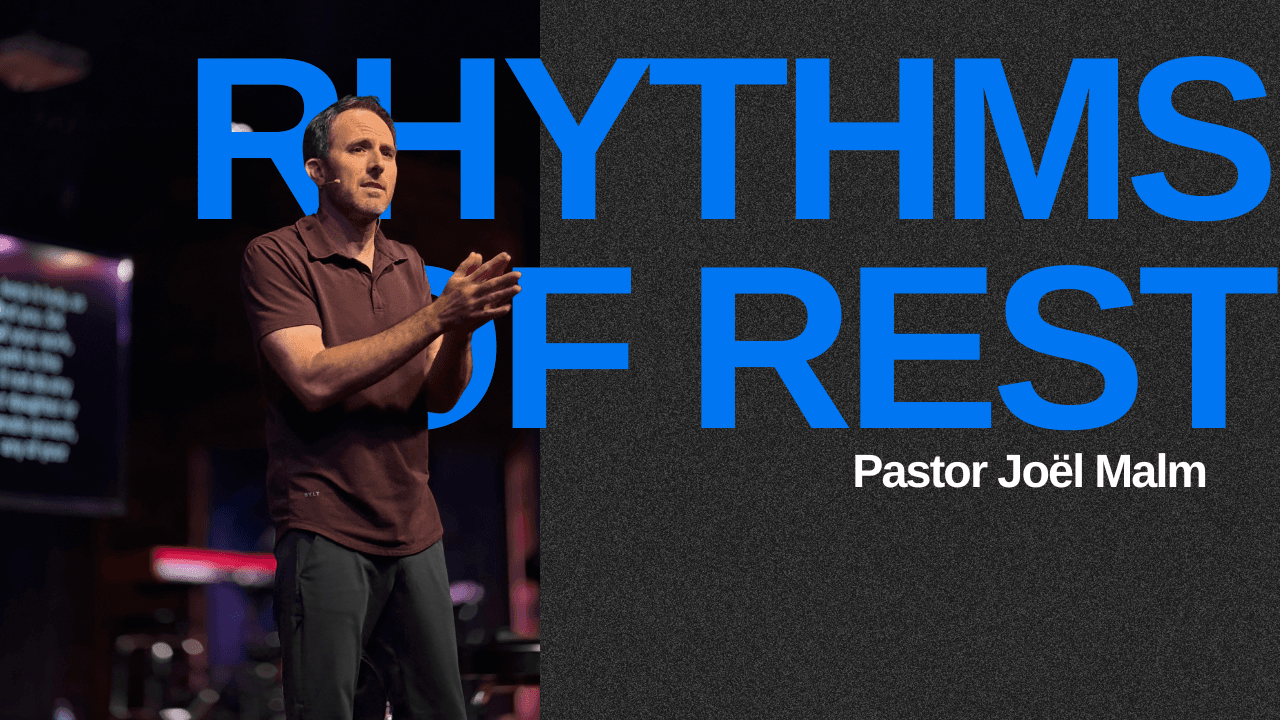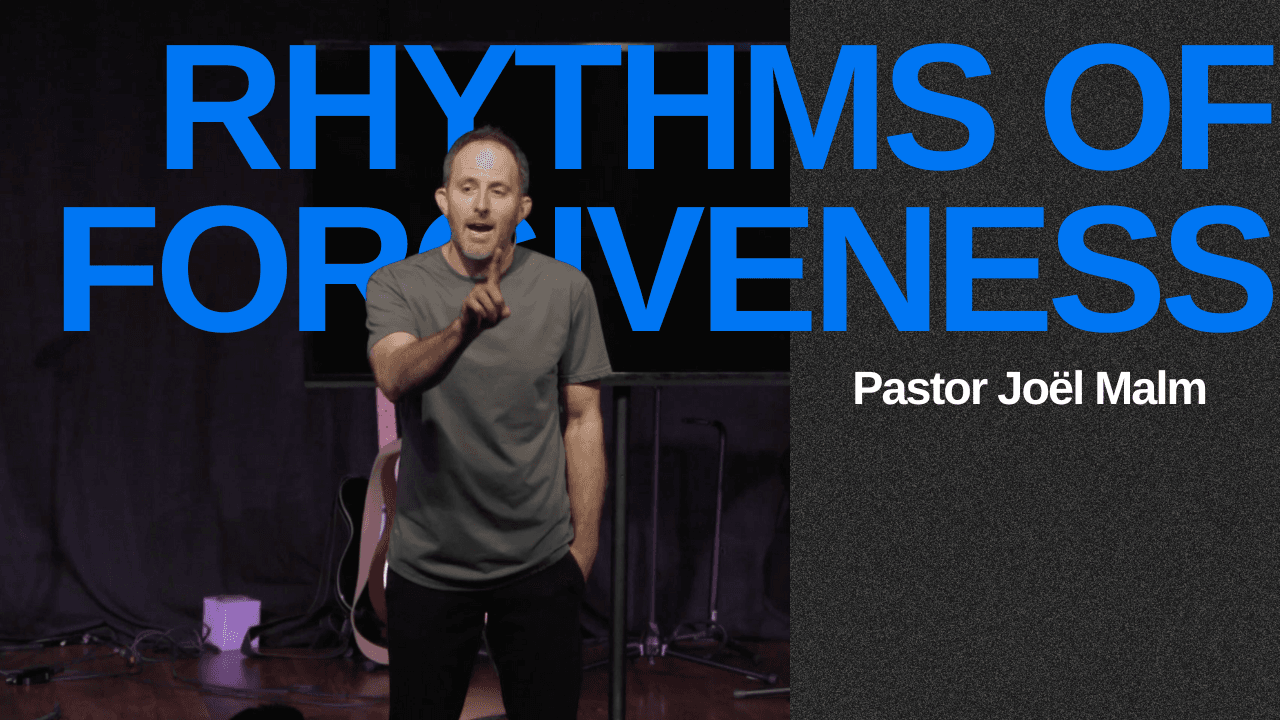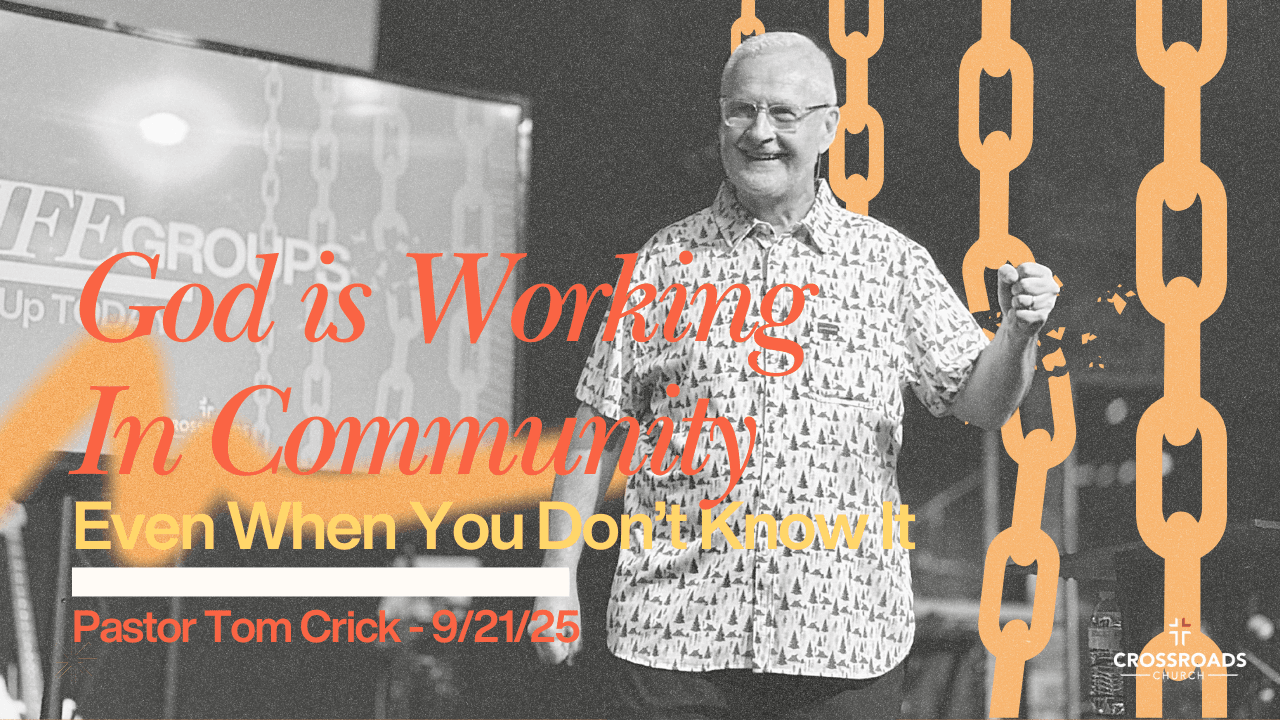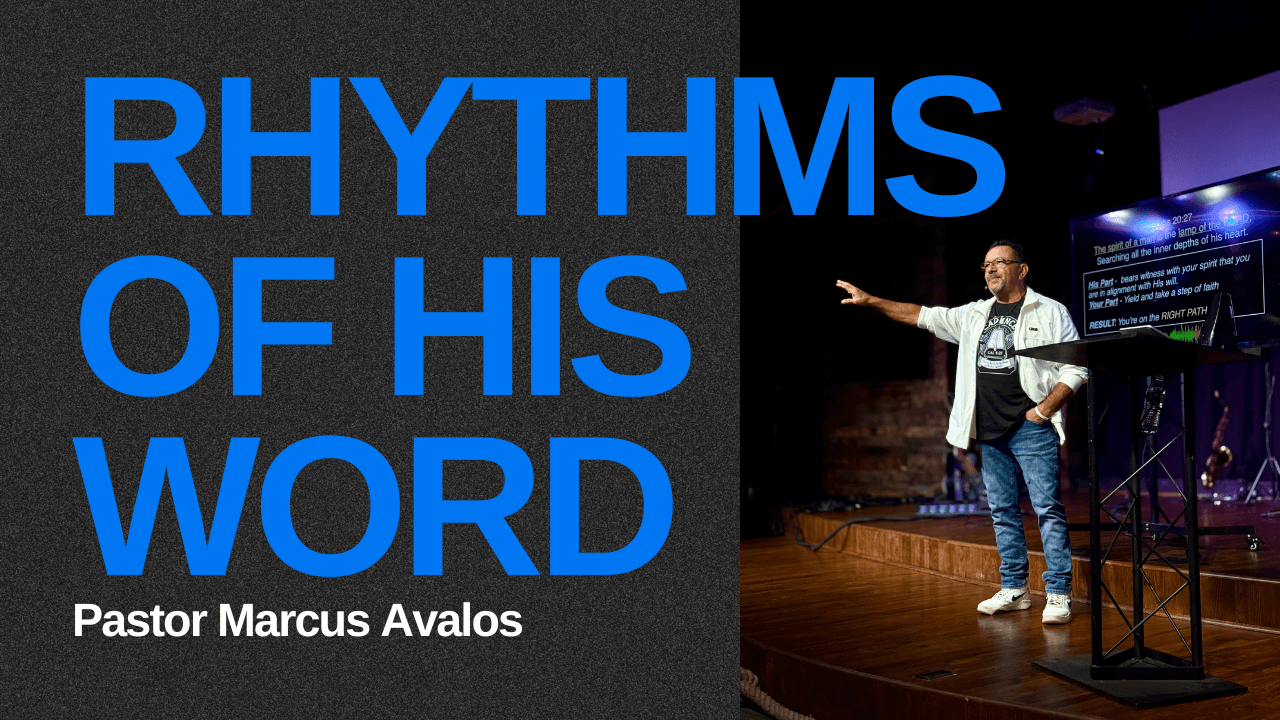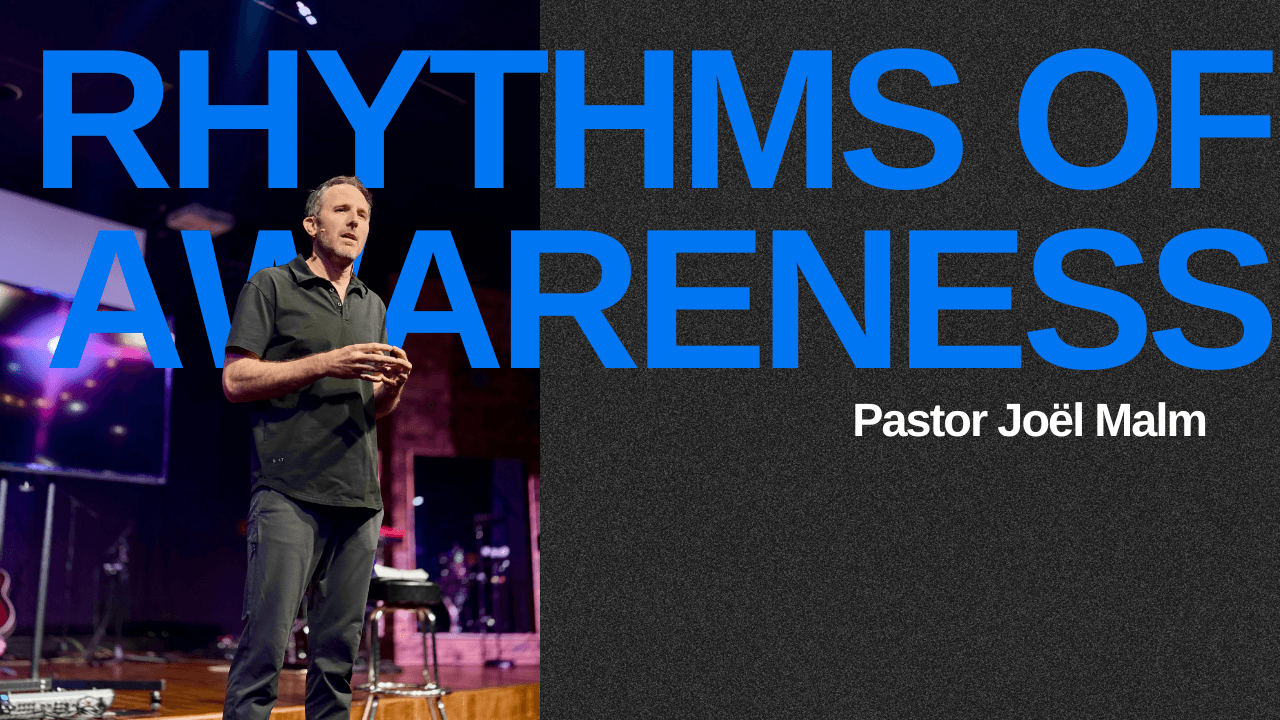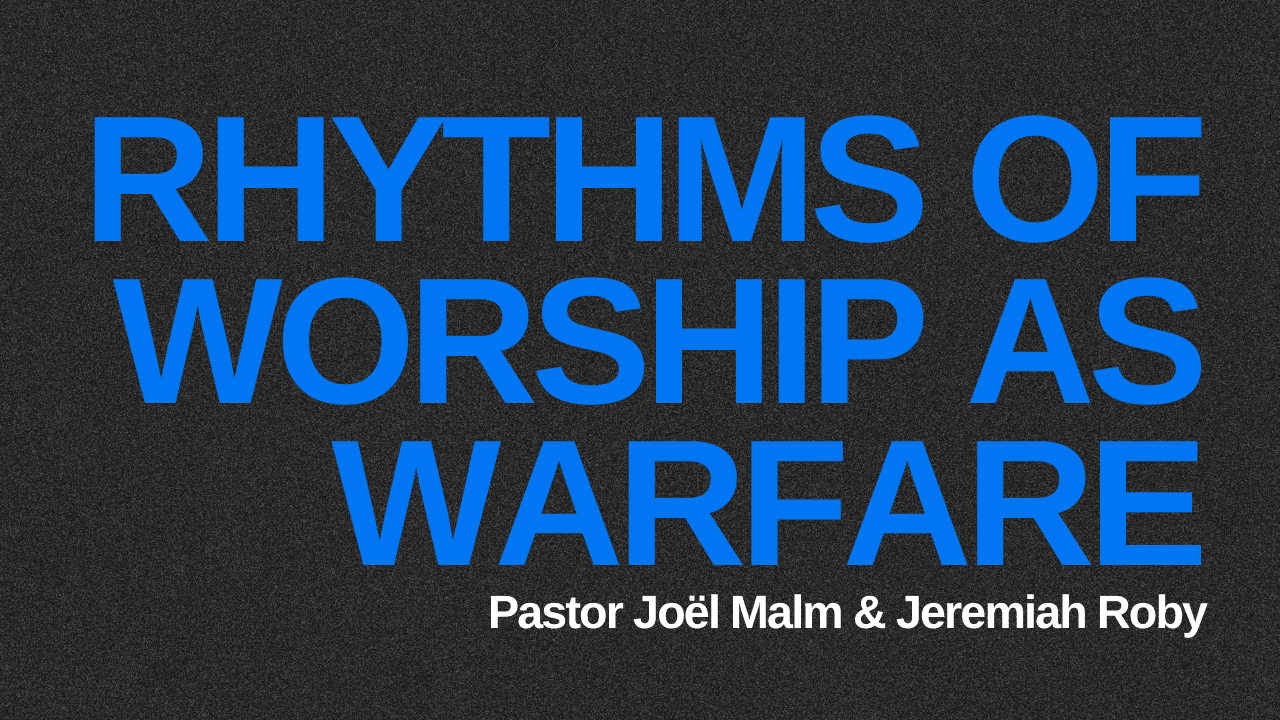Cadence - Marching In Sync With God's Rhythm
Cadence - Marching in Sync With God's Rhythm Part 7, Joël Malm & Jeremiah Roby
Tired? Feeling behind? Running on empty? In our new series, Cadence, we’ll rediscover how to walk in sync with God through rest, intentional rhythms, and focused effort. From embracing Sabbath, to finding alignment in our values, relationships, and priorities, we’ll explore how steady practice shapes us, and how wisdom teaches us when to push forward and when to pull back. Whether your pace has been frantic or stalled, Cadence is an invitation to find your stride again—faithfully, purposefully, and in step with the Spirit.
Links
Series
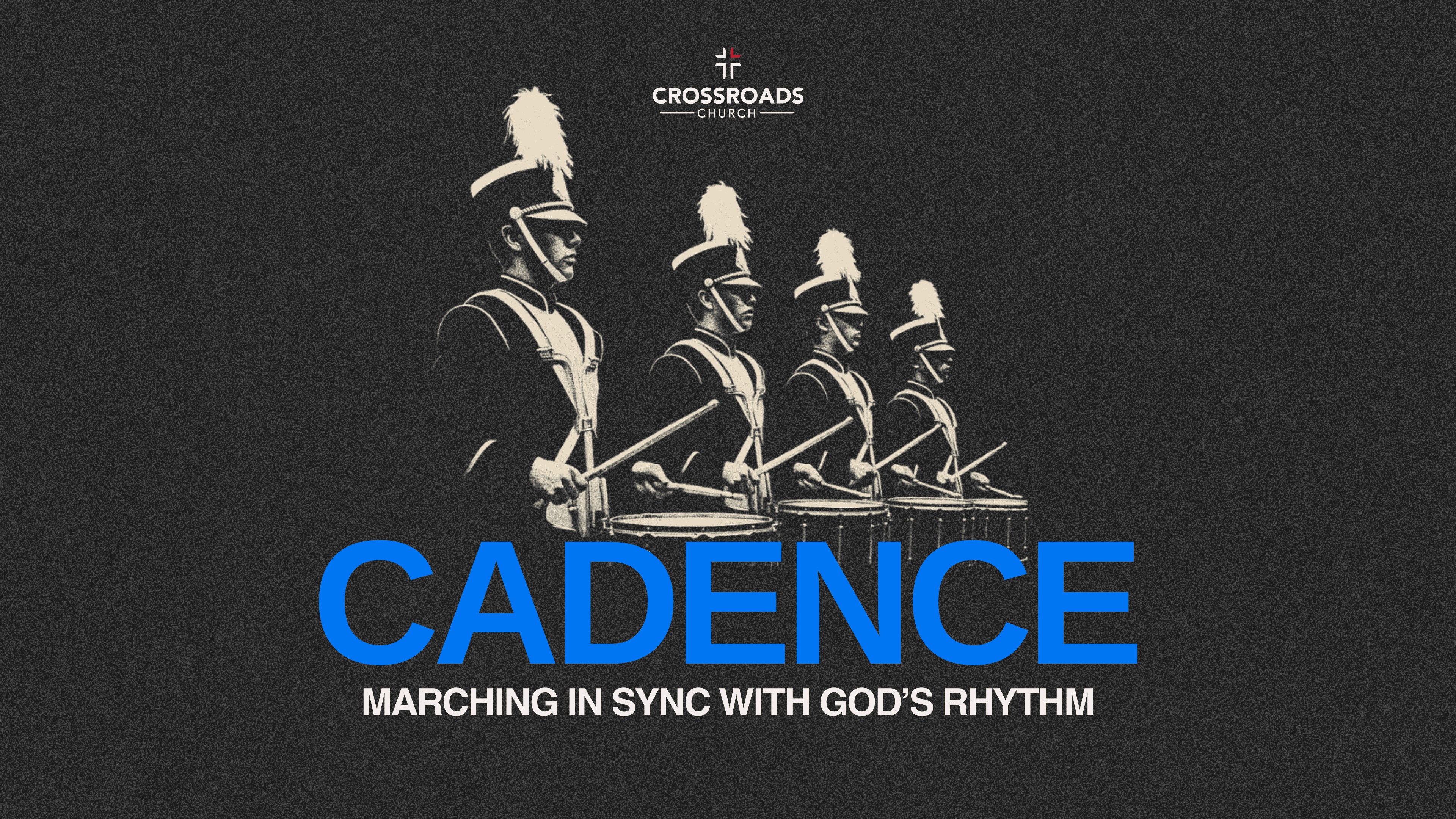
Speakers
Joël Malm
Teaching Pastor
🎯 Key Takeaways Core Points:
Embrace Worship as a Practice: Regularly engage in worship to align your life with God’s rhythms, finding freedom and strength. Understand Worship’s Scope: Recognize that worship is more than music; it involves presenting your life as a living sacrifice and transforming your mind. Utilize Music for Connection: Use music as a powerful tool to bypass mental defenses, express emotions, and focus your heart on God. Seek Victory Through Worship: Actively use worship as a strategy to overcome life’s challenges, trusting that God fights your battles. Establish Rhythms of Faith: Create consistent habits of worship, prayer, and scripture for personal transformation and family spiritual growth. Prioritize God’s Presence: Make dedicated time for God’s presence a regular part of your life to receive guidance and wisdom. 🔍 Summary The Nature and Power of Worship
The discussion centers on the profound importance of worship, moving beyond a superficial understanding to explore its multifaceted nature and practical application. It begins by acknowledging the often-overwhelming nature of daily life, characterized by numerous problems and external pressures, and introduces worship as a powerful way to find a moment of intentional pause and recalibration.
Worship Beyond Music
A key theme is that worship extends far beyond musical expression. Drawing from Romans 12, worship is defined as presenting one’s body as a living sacrifice, holy and acceptable to God, and involves a transformation of the mind rather than conformity to the world. While music is a significant element, it serves as a tool to facilitate this deeper spiritual engagement.
Music as a Transformative Art Form
The speakers highlight music’s unique ability to communicate and connect on a deep emotional and spiritual level. Children naturally express themselves through art, including singing and dancing, without inhibition. This inherent human inclination to express creatively is seen as a parallel to how music can bypass logical defenses in the adult brain, directly impacting the soul, thoughts, desires, and emotions. This power is why music is strategically placed at the beginning of services, to open hearts and prepare individuals for the message.
Biblical Foundations for Worship and Music
The transcript delves into biblical examples that underscore the significance of music and worship in achieving victory and demonstrating faith. Passages from Joshua and Judges illustrate God commanding the use of trumpets and singing in battle, with the walls of Jericho falling and enemies fleeing. The story of Paul and Silas singing in prison, leading to their chains breaking, further emphasizes music’s power. Even in pagan contexts, music was understood to precede worship, demonstrating its deep-seated connection to spiritual experience.
Worship as Alignment and Strategy
Worship is presented as a strategic alignment with God’s reality and power, especially in facing overwhelming challenges. The story of King Jehoshaphat, who placed singers at the front of his army against a formidable foe, exemplifies how worship can lead to victory when facing situations where human strength is insufficient. This highlights worship not as a last resort, but as a primary strategy for spiritual warfare and overcoming obstacles.
Establishing Rhythms and Habits
The concept of “cadence” and “rhythm” is crucial, likening worship to regular maintenance like changing car oil or consistent exercise. Establishing a regular practice of worship, prayer, and scripture reading is presented as transformative from the inside out. This involves intentionality, especially for men as leaders of their homes, to create a spiritual rhythm that impacts the entire family. Examples include reading the Bible, praying together, and singing songs, even in simple ways like playing worship music in the car or during family meals. This consistent engagement with God’s presence is believed to lead to receiving divine ideas and guidance. The ultimate call is to make worship a consistent, ingrained part of life, leading to personal victory and transformation.
